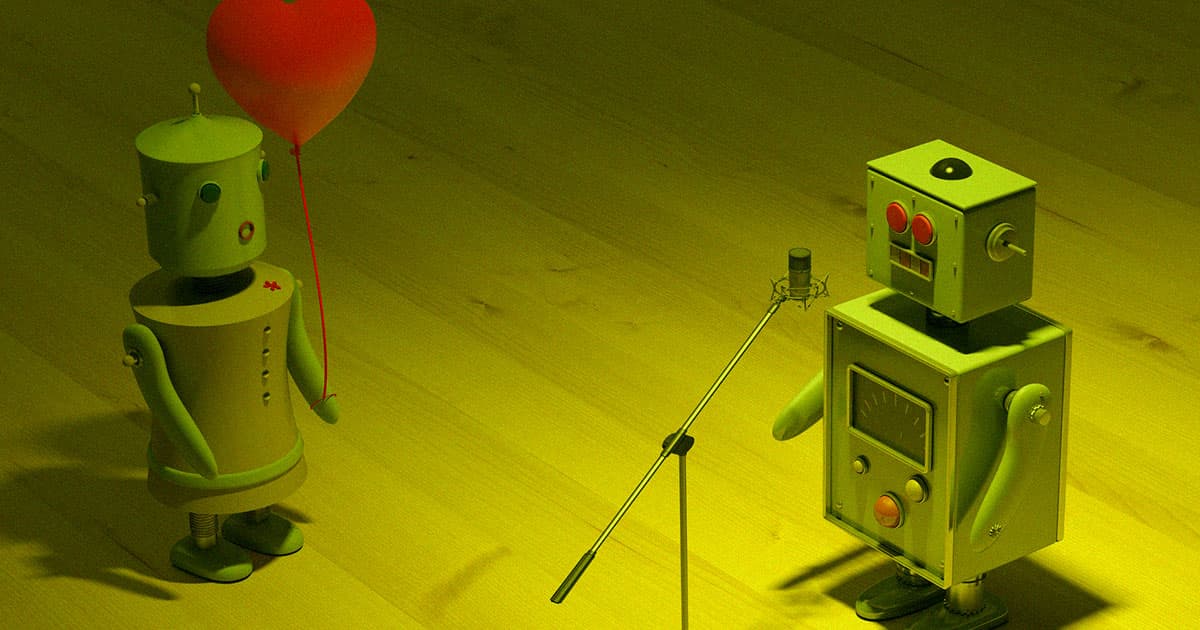It's a devious scheme.
Bots Listening to Bots
An AI startup has been accused of fraudulently boosting the listenership of AI-generated music with the use of streaming bots posing as human listeners.
As the Financial Times reports, Spotify has taken down "tens of thousands," or roughly seven percent of songs uploaded by AI music startup Boomy, which generates tracks based on user inputs. These tracks can then be shared on Spotify where they can generate royalties.
While the AI generation of the music itself is arguably sketchy on an existential level, the issue on Spotify's end stems from "artificial streaming," which is when bot networks are "listening" to these tracks to artificially inflate the number of streams.
The issue, FT reports, was raised to Spotify by record label Universal Music Group, which informed all the major streaming services that there was something fishy about Boomy's numbers.
As AI technologies progress and make it easier than ever before to generate music, companies are caught up in a game of cat and mouse as they try to keep up with an increasing number of agents trying to game the system.
AI Music Flood
This latest AI debacle is the second time in recent months that UMG has waded into the AI-generated music debate.
Last month, the label veritably popped off in response to a viral, AI-generated track that used a cloned version of Aubrey "Drake" Graham's voice. The label demanded that Spotify, Apple Music, and other streaming platforms remove the song, likening the practice to "fraud" in a statement provided to CNN.
It's clear that the record label is going to continue its anti-AI music crusade, and in a statement to FT, Universal's chief digital officer Michael Nash applauded Spotify for taking down a portion of Boomy's tracks.
"We are always encouraged when we see our partners exercise vigilance around the monitoring or activity on their platforms," said Nash.
AI-generated music is absolutely flooding streaming services. Boomy claims it has generated a whopping 14.5 million songs — or 14 percent of the world's recorded music.
It's a worrying trend that could end up undermining the livelihoods of human artists, who receive only a minuscule amount of money from streaming royalties.
It's a dystopian quagmire that seems mighty difficult to untangle, a frantic game of whack-a-mole that paints a grim picture of the music industry's future.
More on AI music: Grimes Says She'll Split Royalties With Anyone Who Deepfakes Her Voice Into a Song
Share This Article
